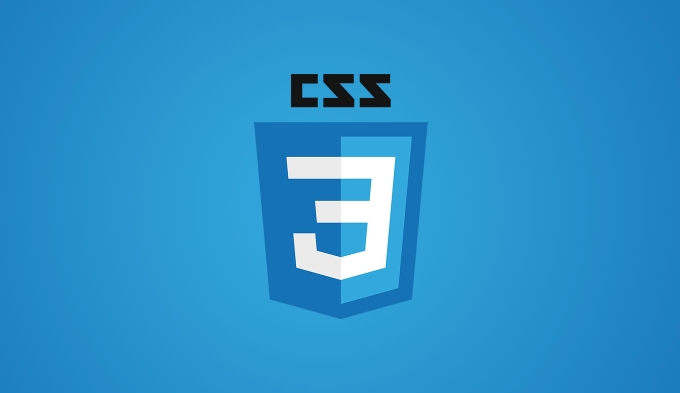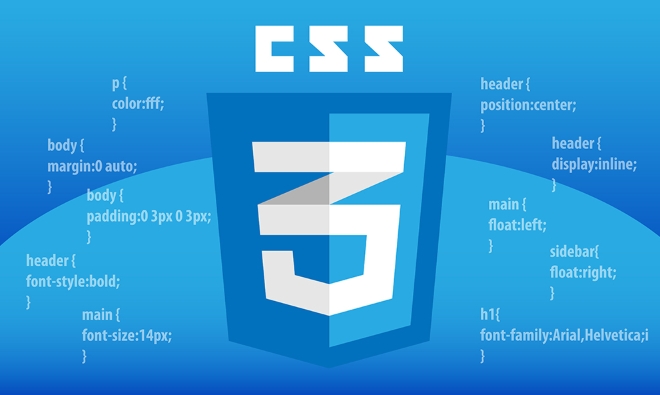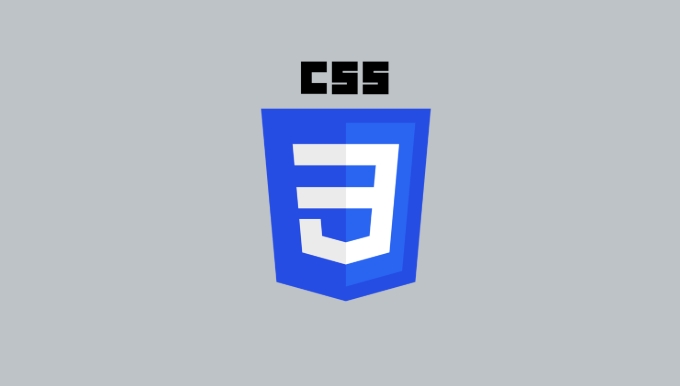 Web Front-end
Web Front-end
 CSS Tutorial
CSS Tutorial
 How to create a responsive, centered hero component with CSS Flexbox?
How to create a responsive, centered hero component with CSS Flexbox?
Create a responsive centered hero component with Flexbox. First, set the HTML structure to include the hero container and content; 2. Use CSS display: flex, justify-content: center and align-items: center to achieve horizontal and vertical centering of content, and set height: 100vh to occupy the full viewport height; 3. Add padding and text-align: center to ensure that the content on the small screen does not overflow and the text is centered; 4. Use media query to adjust the font size and button style when the screen width is less than 768px to improve the mobile experience; 5. Optionally add background images or gradient colors and ensure text readability, ultimately implementing a modern, concise and cross-browser-compatible responsive centered hero component.

Creating a responsive, centered hero component with CSS Flexbox is straightforward and effective. The goal is to have a full-height section (often the first thing users see on a webpage) with content perfectly centered both vertically and horizontally — and it should look good on all screen sizes.

Here's how to do it:
? 1. Basic HTML Structure
Start with a simple hero container and some content inside:

<section class="hero">
<div class="hero-content">
<h1>Welcome to Our Site</h1>
<p>We build amazing user experiences.</p>
<button>Get Started</button>
</div>
</section>? 2. Use Flexbox for Centering
Apply Flexbox to the .hero class to center content:
.hero {
display: flex;
justify-content: center; /* Horizontal center */
align-items: center; /* Vertical center */
height: 100vh; /* Full viewport height */
text-align: center; /* Optional: keeps text centered on narrow screens */
padding: 0 20px; /* Prevents content from touching edges on small screens */
box-sizing: border-box; /* Include padding in width/height */
}-
height: 100vhmakes the hero take up the full height of the viewport. -
justify-content: centercenters content horizontally. -
align-items: centercenters content vertically. -
text-align: centerensures the text itself is centered (especially helpful on mobile). -
paddingadds breathing room on narrow screens.
? 3. Make It Responsive
Even with Flexbox, you may want to adjust font sizes or layout on smaller screens:

.hero-content h1 {
font-size: 2.5rem;
margin-bottom: 1rem;
}
.hero-content p {
font-size: 1.2rem;
margin-bottom: 1.5rem;
}
@media (max-width: 768px) {
.hero-content h1 {
font-size: 2rem;
}
.hero-content p {
font-size: 1rem;
}
button {
padding: 10px 20px;
font-size: 1rem;
}
}You can also stack elements or adjust spacing as needed.
? 4. Optional: Background Image or Color
To make it more visually appealing:
.hero {
background: url('hero-bg.jpg') no-repeat center center;
background-size: cover;
color: white;
}Or use a solid/gradient background:
.hero {
background: linear-gradient(135deg, #1e3c72, #2a5298);
color: white;
}Ensure text remains readable with sufficient contrast.
? 5. Full Example (Minimal & Working)
<!DOCTYPE html>
<html lang="en">
<head>
<meta charset="UTF-8" />
<meta name="viewport" content="width=device-width, initial-scale=1.0"/>
<title>Centered Hero</title>
<style>
* {
margin: 0;
padding: 0;
box-sizing: border-box;
}
.hero {
display: flex;
justify-content: center;
align-items: center;
height: 100vh;
text-align: center;
padding: 0 20px;
background: linear-gradient(135deg, #1e3c72, #2a5298);
color: white;
}
.hero-content h1 {
font-size: 2.5rem;
}
.hero-content p {
font-size: 1.2rem;
margin: 1rem 0;
}
button {
padding: 12px 24px;
font-size: 1rem;
background: white;
color: #2a5298;
border: none;
border-radius: 4px;
cursor: pointer;
}
@media (max-width: 768px) {
.hero-content h1 {
font-size: 2rem;
}
}
</style>
</head>
<body>
<section class="hero">
<div class="hero-content">
<h1>Welcome to Our Site</h1>
<p>We build amazing user experiences.</p>
<button>Get Started</button>
</div>
</section>
</body>
</html>That's it. This approach is clean, responsive, and works across modern browsers. You don't need floats, absolute positioning, or JavaScript — just Flexbox and a few responsive tweaks.
Basically: flex centering viewport height padding = perfect hero.
The above is the detailed content of How to create a responsive, centered hero component with CSS Flexbox?. For more information, please follow other related articles on the PHP Chinese website!

Hot AI Tools

Undress AI Tool
Undress images for free

Undresser.AI Undress
AI-powered app for creating realistic nude photos

AI Clothes Remover
Online AI tool for removing clothes from photos.

Clothoff.io
AI clothes remover

Video Face Swap
Swap faces in any video effortlessly with our completely free AI face swap tool!

Hot Article

Hot Tools

Notepad++7.3.1
Easy-to-use and free code editor

SublimeText3 Chinese version
Chinese version, very easy to use

Zend Studio 13.0.1
Powerful PHP integrated development environment

Dreamweaver CS6
Visual web development tools

SublimeText3 Mac version
God-level code editing software (SublimeText3)
 CSS tutorial for creating loading spinners and animations
Jul 07, 2025 am 12:07 AM
CSS tutorial for creating loading spinners and animations
Jul 07, 2025 am 12:07 AM
There are three ways to create a CSS loading rotator: 1. Use the basic rotator of borders to achieve simple animation through HTML and CSS; 2. Use a custom rotator of multiple points to achieve the jump effect through different delay times; 3. Add a rotator in the button and switch classes through JavaScript to display the loading status. Each approach emphasizes the importance of design details such as color, size, accessibility and performance optimization to enhance the user experience.
 Addressing CSS Browser Compatibility issues and prefixes
Jul 07, 2025 am 01:44 AM
Addressing CSS Browser Compatibility issues and prefixes
Jul 07, 2025 am 01:44 AM
To deal with CSS browser compatibility and prefix issues, you need to understand the differences in browser support and use vendor prefixes reasonably. 1. Understand common problems such as Flexbox and Grid support, position:sticky invalid, and animation performance is different; 2. Check CanIuse confirmation feature support status; 3. Correctly use -webkit-, -moz-, -ms-, -o- and other manufacturer prefixes; 4. It is recommended to use Autoprefixer to automatically add prefixes; 5. Install PostCSS and configure browserslist to specify the target browser; 6. Automatically handle compatibility during construction; 7. Modernizr detection features can be used for old projects; 8. No need to pursue consistency of all browsers,
 What is the difference between display: inline, display: block, and display: inline-block?
Jul 11, 2025 am 03:25 AM
What is the difference between display: inline, display: block, and display: inline-block?
Jul 11, 2025 am 03:25 AM
Themaindifferencesbetweendisplay:inline,block,andinline-blockinHTML/CSSarelayoutbehavior,spaceusage,andstylingcontrol.1.Inlineelementsflowwithtext,don’tstartonnewlines,ignorewidth/height,andonlyapplyhorizontalpadding/margins—idealforinlinetextstyling
 Creating custom shapes with css clip-path
Jul 09, 2025 am 01:29 AM
Creating custom shapes with css clip-path
Jul 09, 2025 am 01:29 AM
Use the clip-path attribute of CSS to crop elements into custom shapes, such as triangles, circular notches, polygons, etc., without relying on pictures or SVGs. Its advantages include: 1. Supports a variety of basic shapes such as circle, ellipse, polygon, etc.; 2. Responsive adjustment and adaptable to mobile terminals; 3. Easy to animation, and can be combined with hover or JavaScript to achieve dynamic effects; 4. It does not affect the layout flow, and only crops the display area. Common usages are such as circular clip-path:circle (50pxatcenter) and triangle clip-path:polygon (50%0%, 100 0%, 0 0%). Notice
 Styling visited links differently with CSS
Jul 11, 2025 am 03:26 AM
Styling visited links differently with CSS
Jul 11, 2025 am 03:26 AM
Setting the style of links you have visited can improve the user experience, especially in content-intensive websites to help users navigate better. 1. Use CSS's: visited pseudo-class to define the style of the visited link, such as color changes; 2. Note that the browser only allows modification of some attributes due to privacy restrictions; 3. The color selection should be coordinated with the overall style to avoid abruptness; 4. The mobile terminal may not display this effect, and it is recommended to combine it with other visual prompts such as icon auxiliary logos.
 How to create responsive images using CSS?
Jul 15, 2025 am 01:10 AM
How to create responsive images using CSS?
Jul 15, 2025 am 01:10 AM
To create responsive images using CSS, it can be mainly achieved through the following methods: 1. Use max-width:100% and height:auto to allow the image to adapt to the container width while maintaining the proportion; 2. Use HTML's srcset and sizes attributes to intelligently load the image sources adapted to different screens; 3. Use object-fit and object-position to control image cropping and focus display. Together, these methods ensure that the images are presented clearly and beautifully on different devices.
 Demystifying CSS Units: px, em, rem, vw, vh comparisons
Jul 08, 2025 am 02:16 AM
Demystifying CSS Units: px, em, rem, vw, vh comparisons
Jul 08, 2025 am 02:16 AM
The choice of CSS units depends on design requirements and responsive requirements. 1.px is used for fixed size, suitable for precise control but lack of elasticity; 2.em is a relative unit, which is easily caused by the influence of the parent element, while rem is more stable based on the root element and is suitable for global scaling; 3.vw/vh is based on the viewport size, suitable for responsive design, but attention should be paid to the performance under extreme screens; 4. When choosing, it should be determined based on whether responsive adjustments, element hierarchy relationships and viewport dependence. Reasonable use can improve layout flexibility and maintenance.
 What are common CSS browser inconsistencies?
Jul 26, 2025 am 07:04 AM
What are common CSS browser inconsistencies?
Jul 26, 2025 am 07:04 AM
Different browsers have differences in CSS parsing, resulting in inconsistent display effects, mainly including the default style difference, box model calculation method, Flexbox and Grid layout support level, and inconsistent behavior of certain CSS attributes. 1. The default style processing is inconsistent. The solution is to use CSSReset or Normalize.css to unify the initial style; 2. The box model calculation method of the old version of IE is different. It is recommended to use box-sizing:border-box in a unified manner; 3. Flexbox and Grid perform differently in edge cases or in old versions. More tests and use Autoprefixer; 4. Some CSS attribute behaviors are inconsistent. CanIuse must be consulted and downgraded.





